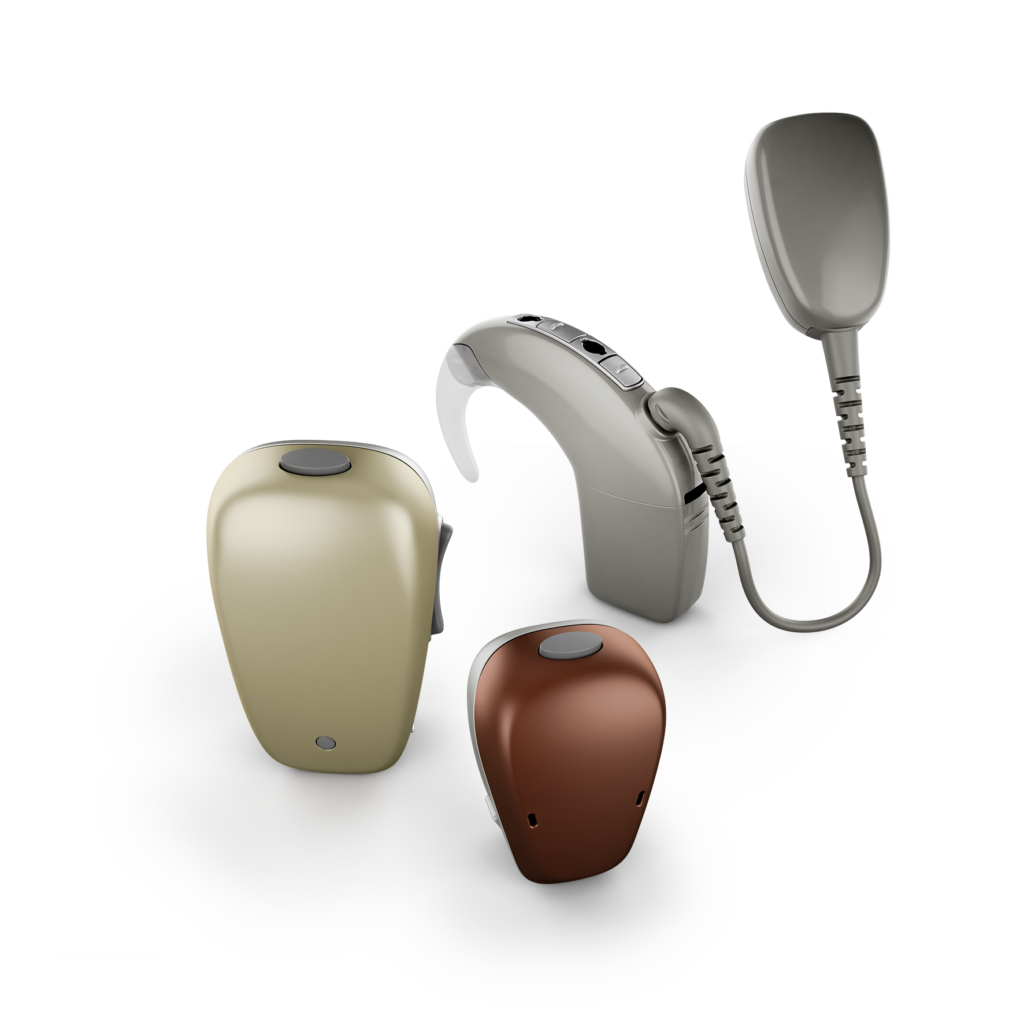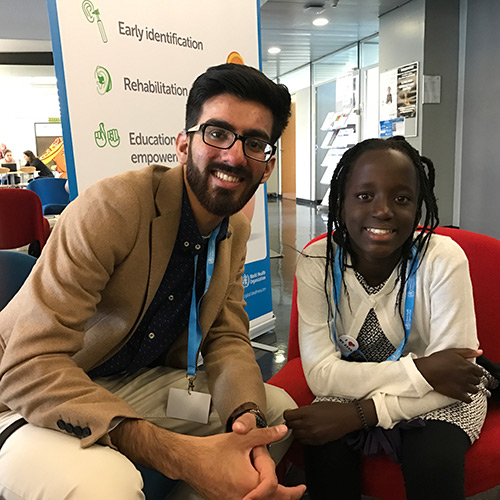Did you know that your partner and family can make an enormous difference to your hearing success? Support goes a long way – and not just emotional support after experiencing major change in your life, which often comes with a hearing implant.
Support from those who care about us is also about developing confidence to deal with social situations and helping you practice to improve your listening skills.
Having a partner or someone in your household by your side can help you manage challenging dynamics, for example with your children, as you all navigate family life with a hearing implant.
We asked adults with hearing implants to share their experiences of how someone significant made a difference to their hearing success.
Helping you understand you’re not alone
Andreas and Caroline, a couple from Canada who have been together for 31 years, are a tight team. They believe spending a lot of time together has been key for Caroline’s progress since she received her cochlear implant in 2018.
Andreas says that, while a cochlear implant is a big change for the person with hearing loss, life also changes for everyone else around them in their life, especially after activation.
“The emotional payload of restored access to hearing is immense, unexpected, and powerful,” says Andreas. “What we were learning was just how fundamental hearing and listening is to the human experience. It connects us in ways we simply didn’t appreciate. Now, we do.”
Andreas also spends a lot of time with Caroline, helping her with her hearing therapy. “As the hearing spouse, you can act as a ‘sound catalogue’ as they learn to listen to the sounds in your everyday life. Eventually, confirmation turns to confidence. Success breeds success.”
Encourage active hearing therapy
For David, a cochlear implant recipient with four children, his wife Jodie has also been by his side from the start.
Life with a cochlear implant was an adjustment, not only for David, but for Jodie and their young Australian family. “It was about being patient, encouraging him to persevere,” says Jodie. “You’ve got to stick with it and not expect to be able to hear overnight. You have to train your brain.”
“Jodie’s support was particularly crucial in those early days,” says David. “It was a team effort; we both wanted the cochlear implant to be a success.”
Tom, a cochlear implant recipient from the US, agrees and says a lot of recipients don’t realise they need to take the time to practise their hearing – and that hearing therapy pays off.
Tom says his wife has played a pivotal role in his hearing therapy by regularly playing cards and board games, reading out Tom’s work rosters and grocery lists to practice.
“There are a lot of things you can do at home to help your hearing. It’s the simple things that make all the difference,” says Tom. “Involve your family and friends as much as possible – you’re not in this thing alone.”
Mix it up: Expand your shared experiences
After her husband’s activation, Jodie played a support role by encouraging David to engage in social situations and helping him identify sounds.
For Andreas and Caroline, exploring new environments together has been crucial. “Don’t wait for sound to come to you. Visit a construction site. Visit a farm, wineries, a repair shop, music stores… any place with a distinctive set of sounds is a listening target,” says Andreas. “Our approach is to go and listen,” which they routinely do together.
Overcome family challenges
While support from a spouse to practise listening is crucial, managing the overall family dynamic is also important.
Jodie remembers situations when the kids, aged 6 to 16, would talk at a normal level, but to David it was loud and he reacted negatively. He missed the context or misjudged the tone of what was being said. This was difficult for the children to understand and often upsetting for their 6-year-old twins.
“It was just a matter of having to talk this through with the kids. [It was] not that they were in trouble, because they hadn’t done anything wrong, but that it was difficult for their dad,” says Jodie.
Simple strategies helped. Jodie reminded the children to get their father’s attention before speaking to him and encouraged them to speak directly with David and not to rely on her as an intermediary.
Give you confidence to expand your “family”
While engaging family and friends is important, reaching out to others with hearing implants is also very powerful as they play a different role, says Sue, one of Australia’s earliest recipients who runs a not-for-profit support group for adults with cochlear implants.
“Recipients can help each other with advice and tips for everyday activities, social engagement and managing phone calls. They understand the difficulties that present in all sorts of daily circumstances,” says Sue.
“It’s important to build your confidence and get the maximum benefit from your cochlear implant.”




